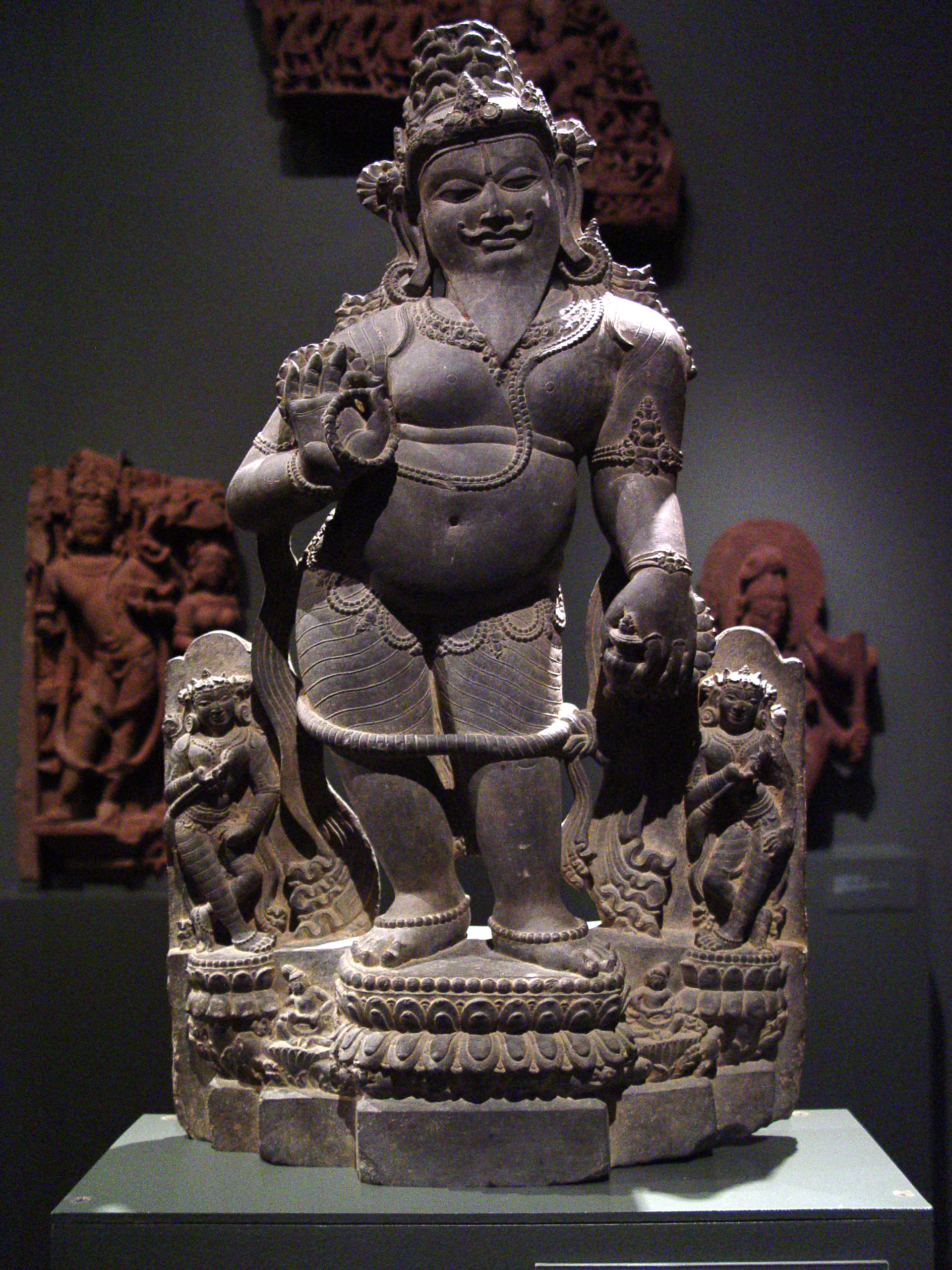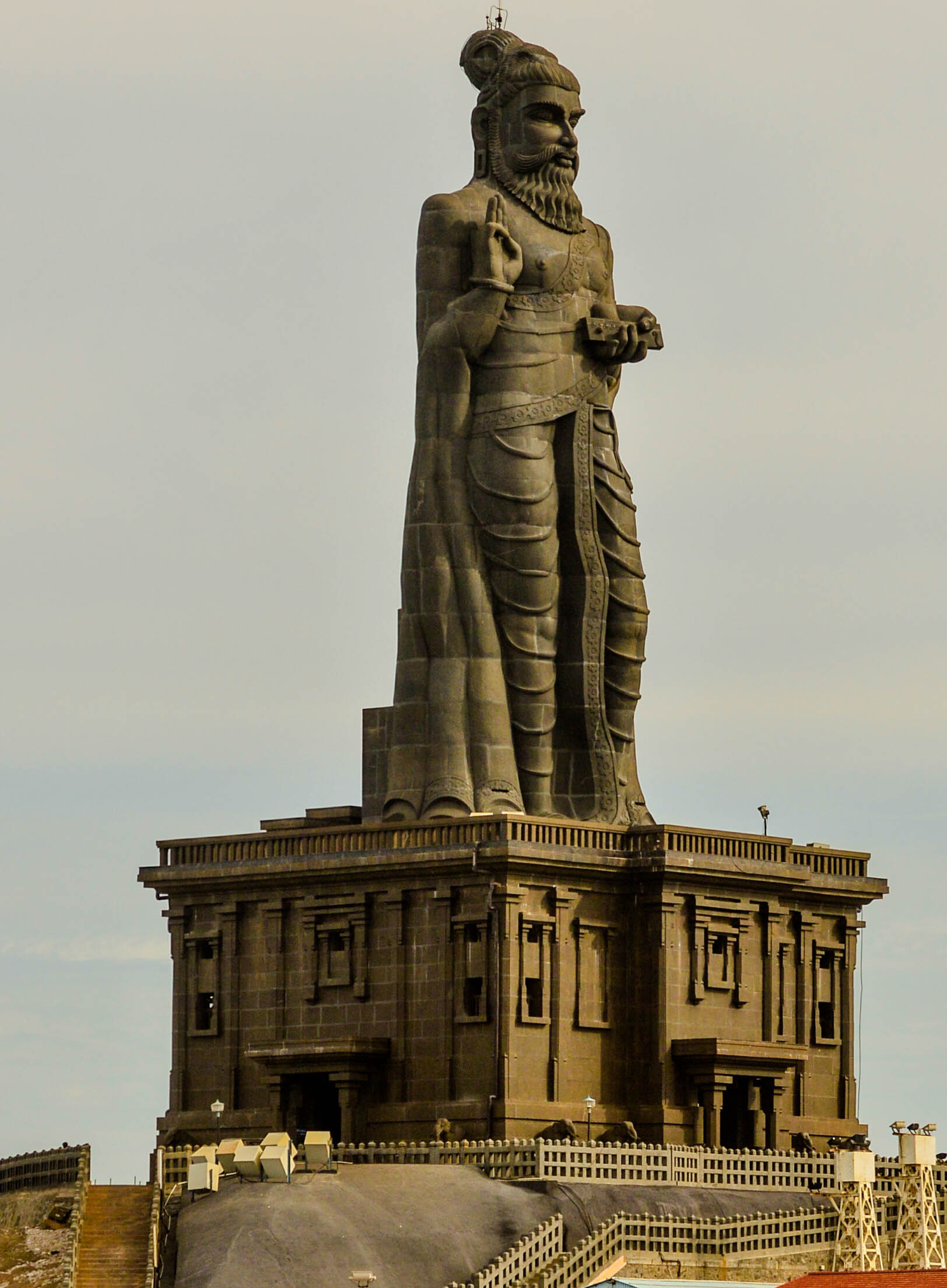|
Nanpalur Sirumedhaviyar
Nanpalūr Sirumēthāviyār (Tamil language, Tamil: நன்பலூர் சிறு மேதாவியார்) was a poet of the Sangam period, to whom 3 verses of the Sangam literature have been attributed, including verse 20 of the Tiruvalluva Maalai. Biography Sirumedhaviyar hailed from the town of Nanpalur. Being highly intellectual at a young age resulted his being called Sirumedhaviyar, which literally means "little genius". Contribution to the Sangam literature Sirumedhaviyar has written 3 verses, including 2 in Agananuru (verses 94 and 394) and 1 in Tiruvalluva Maalai. He was the first to divide the Tirukkural into ''Iyal''s or subdivisions, which he suggested in his composition of verse 20 of the Tiruvalluva Maalai, which was later followed variously by the Ten Medieval Commentators, Medieval commentators of the Kural text. See also * Sangam literature * List of Sangam poets * Tiruvalluva Maalai Notes {{DEFAULTSORT:Nanpalur Sirumedhaviyar Tamil ph ... [...More Info...] [...Related Items...] OR: [Wikipedia] [Google] [Baidu] |
Tamil Language
Tamil (; ' , ) is a Dravidian language natively spoken by the Tamil people of South Asia. Tamil is an official language of the Indian state of Tamil Nadu, the sovereign nations of Sri Lanka and Singapore, and the Indian territory of Puducherry. Tamil is also spoken by significant minorities in the four other South Indian states of Kerala, Karnataka, Andhra Pradesh and Telangana, and the Union Territory of the Andaman and Nicobar Islands. It is also spoken by the Tamil diaspora found in many countries, including Malaysia, Myanmar, South Africa, United Kingdom, United States, Canada, Australia and Mauritius. Tamil is also natively spoken by Sri Lankan Moors. One of 22 scheduled languages in the Constitution of India, Tamil was the first to be classified as a classical language of India. Tamil is one of the longest-surviving classical languages of India.. "Tamil is one of the two longest-surviving classical languages in India" (p. 7). A. K. Ramanujan described it as "the on ... [...More Info...] [...Related Items...] OR: [Wikipedia] [Google] [Baidu] |
Sangam Period
The Sangam period or age (, ), particularly referring to the third Sangam period, is the period of the history of ancient Tamil Nadu, Kerala and parts of Sri Lanka (then known as Tamilakam) spanning from c. 6th century BCE to c. 3rd century CE. It was named after the famous Sangam academies of poets and scholars centered in the city of Madurai. The First Sangam to be located in ''Then Madurai'' under the patronage of 89 Pandya kings, during this period. It is said to have lasted for 4,440 years, and this would put the First Sangam between 9600 BCE to 5200 BCE. In Old Tamil language, the term Tamilakam (''Tamiḻakam'', ''Purananuru'' 168. 18) referred to the whole of the ancient Tamil-speaking area, corresponding roughly to the area known as southern India today, consisting of the territories of the present-day Indian states of Tamil Nadu, Kerala, parts of Andhra Pradesh, parts of Karnataka and northern Sri Lanka also known as Eelam. History According to Tamil legends, th ... [...More Info...] [...Related Items...] OR: [Wikipedia] [Google] [Baidu] |
Sangam Literature
The Sangam literature (Tamil: சங்க இலக்கியம், ''caṅka ilakkiyam'';) historically known as 'the poetry of the noble ones' (Tamil: சான்றோர் செய்யுள், ''Cāṉṟōr ceyyuḷ'') connotes the ancient Tamil literature and is the earliest known literature of South India. The Tamil tradition and legends link it to three literary gatherings around Madurai and Kapāṭapuram ( Pandyan capitals): the first over 4,440 years, the second over 3,700 years, and the third over 1,850 years before the start of the common era. Scholars consider this Tamil tradition-based chronology as ahistorical and mythical. Most scholars suggest the historical Sangam literature era spanned from c. 300 BCE to 300 CE, while others variously place this early classical Tamil literature period a bit later and more narrowly but all before 300 CE. According to Kamil Zvelebil – a Tamil literature and history scholar, the most acceptable range for the Sangam l ... [...More Info...] [...Related Items...] OR: [Wikipedia] [Google] [Baidu] |
Tiruvalluva Maalai
Tiruvalluva Maalai (Tamil: திருவள்ளுவ மாலை), literally 'Garland of Valluvar', is an anthology of ancient Tamil paeans containing fifty-five verses each attributed to different poets praising the ancient work of the Kural and its author Valluvar. With the poets' time spanning across centuries starting from around 1st century CE, the collection is believed to have reached its present form by 10th century CE. With the historical details of the ancient philosopher and his work remaining obscure, much of the legend on the Kural and Valluvar as they are known today are chiefly from this work. The collection also reveals the name of the author of the Kural text as 'Valluvar' for the first time, as Valluvar himself composed the Kural text centuries earlier without indicating his name anywhere in his work. Reminiscing this, E. S. Ariel, a French scholar of the 19th century, famously said of the Tirukkural thus: ''Ce livre sans nom, par un autre sans nom'' ("Th ... [...More Info...] [...Related Items...] OR: [Wikipedia] [Google] [Baidu] |
Tirukkural
The ''Tirukkuṟaḷ'' ( ta, திருக்குறள், lit=sacred verses), or shortly the ''Kural'' ( ta, குறள்), is a classic Tamil language text consisting of 1,330 short couplets, or Kural (poetic form), kurals, of seven words each. The text is divided into three books with aphoristic teachings on virtue (''aram''), wealth (''porul'') and love (''inbam''), respectively. Considered one of the greatest works ever written on ethics and morality, it is known for its universality and secularity, secular nature. Its authorship is traditionally attributed to Thiruvalluvar, Valluvar, also known in full as Thiruvalluvar. The text has been dated variously from 300 BCE to 5th century CE. The traditional accounts describe it as the last work of the third Sangam literature, Sangam, but linguistic analysis suggests a later date of 450 to 500 CE and that it was composed after the Sangam period. The Kural text is among the earliest systems of Indian epistemology and meta ... [...More Info...] [...Related Items...] OR: [Wikipedia] [Google] [Baidu] |
Ten Medieval Commentators
The Ten Medieval Commentators (Tamil: உரையாசிரியர்கள் பதின்மர்) were a canonical group of Tamil scholars whose commentaries on the ancient Indian didactic work of the Kural are esteemed by later scholars as worthy of critical analysis. These scholars lived in the Medieval era between the 10th and 13th centuries CE. Among these medieval commentaries, the commentaries of Manakkudavar, Kaalingar, and Parimelalhagar are considered pioneer by modern scholars. Commentaries The Kural remains the most reviewed work of the Tamil literature, with almost every scholar down the ages having written commentaries on it. Of the several hundred commentaries written on the didactic work over the centuries, the commentaries written by a group of ten medieval scholars are considered to have high literary value. The ten scholars are: * Manakkudavar (c. 10th century CE) * Dhamatthar (c. 11th century CE) * Nacchar (c. 11th century CE) * Paridhi (c. 11th cent ... [...More Info...] [...Related Items...] OR: [Wikipedia] [Google] [Baidu] |
List Of Sangam Poets
Sangam refers to the assembly of the highly learned people of the ancient Tamil land, with the primary aim of advancing the literature. There were historically three Sangams. With the details of the first two Sangams remaining obscure, all the available Sangam works come from the Third Sangam, which began sometime around 1500 BCE. It is said to have lasted 1850 years, until around 300 CE, with 449 poets contributing under the patronage of 49 Pandyan kings. However, only the works of the last 800 years of the Sangam period () have been retrieved and others are believed to have been lost. List of Sangam poets Below is a list of poets of the Third Sangam period: See also * Third Sangam * Sangam landscape The Sangam landscape (Tamil: அகத்திணை "inner classification") is the name given to a poetic device that was characteristic of love poetry in classical Tamil Sangam literature. The core of the device was the categorisation of poe ... References Further r ... [...More Info...] [...Related Items...] OR: [Wikipedia] [Google] [Baidu] |
Tamil Philosophy
Tamil may refer to: * Tamils, an ethnic group native to India and some other parts of Asia **Sri Lankan Tamils, Tamil people native to Sri Lanka also called ilankai tamils **Tamil Malaysians, Tamil people native to Malaysia * Tamil language, natively spoken by the Tamils * Tamil script, primarily used to write the Tamil language **Tamil (Unicode block), a block of Tamil characters in Unicode * Tamil dialects, referencing geographical variations in speech See also * Tamil cinema, also known as Kollywood, the word being a portmanteau of Kodambakkam and Hollywood. * Tamil cuisine * Tamil culture, is considered to be one of the world's oldest civilizations. * Tamil diaspora * Tamil Eelam, a proposed independent state in the north and east of Sri Lanka * Tamil Nadu, one of the 28 states of India * Tamil nationalism * ''Tamil News'', a daily Tamil-language television news program in Tamil Nadu * Tamilakam, the geographical region inhabited by the ancient Tamil people, covered today's Tam ... [...More Info...] [...Related Items...] OR: [Wikipedia] [Google] [Baidu] |
Tamil Poets
Tamil may refer to: * Tamils, an ethnic group native to India and some other parts of Asia **Sri Lankan Tamils, Tamil people native to Sri Lanka also called ilankai tamils **Tamil Malaysians, Tamil people native to Malaysia * Tamil language, natively spoken by the Tamils * Tamil script, primarily used to write the Tamil language **Tamil (Unicode block), a block of Tamil characters in Unicode * Tamil dialects, referencing geographical variations in speech See also * Tamil cinema, also known as Kollywood, the word being a portmanteau of Kodambakkam and Hollywood. * Tamil cuisine * Tamil culture, is considered to be one of the world's oldest civilizations. * Tamil diaspora * Tamil Eelam, a proposed independent state in the north and east of Sri Lanka * Tamil Nadu, one of the 28 states of India * Tamil nationalism * ''Tamil News'', a daily Tamil-language television news program in Tamil Nadu * Tamilakam, the geographical region inhabited by the ancient Tamil people, covered today's Tam ... [...More Info...] [...Related Items...] OR: [Wikipedia] [Google] [Baidu] |
Sangam Poets
Sangam, (from ''Sangama'', the Sanskrit word for confluence) may refer to: Confluence of rivers *Sangam, any confluence of two or more rivers in Indian languages *The Triveni Sangam, the confluence of three rivers at Allahabad: the Ganges, Yamuna and the mythical Saraswat Tamil history *Tamil Sangams, legendary assemblies of Tamil scholars and poets in the remote past *Sangam period, the earliest period of South Indian history, when the Tamil Sangams were held *Sangam literature, a collection of Tamil literature *First Sangam *Second Sangam *Third Sangam Places *Sangam, Akhnoor, a village in Jammu and Kashmir * Sangam, Anantnag, a village in Jammu and Kashmir *Sangam, Nellore district, a village in Andhra Pradesh * Sangam, Srikakulam district, a triveni sangam (triple confluence) in Andhra Pradesh * Sangam (Warangal district), a mandal and village in Warangal district in Andhra Pradesh * Sangama, Srirangapatna, a confluence of rivers in Karnataka Education *Sangam World Girl Gui ... [...More Info...] [...Related Items...] OR: [Wikipedia] [Google] [Baidu] |



